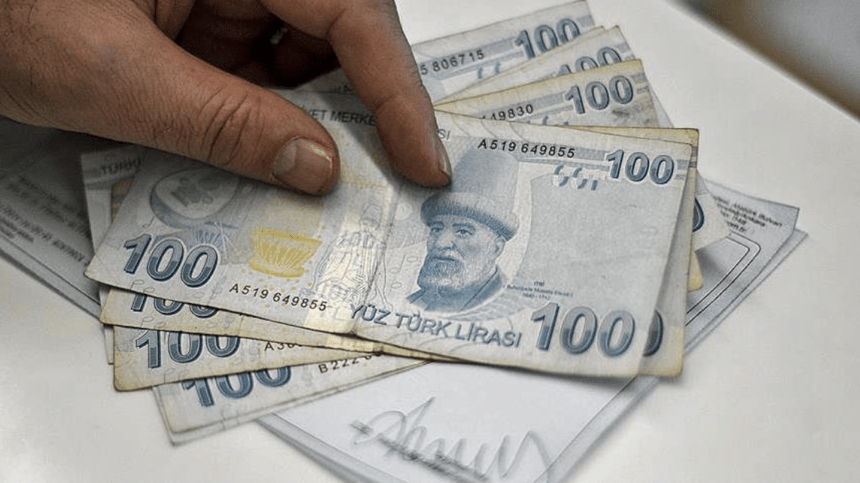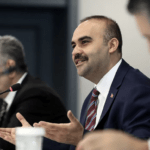The Turkish Central Bank started TRY deposit buying auctions after 17 years to withdraw excess liquidity from the market. The CBRT’s 8 TRY deposit buying auctions held since December 22 to sterilize the excess liquidity in the market reached TRY 425 billion. Experts say the excess liquidity has caused the daily deposit rate to fall as low as 30 percent and expect the auctions to continue.
After 8 auctions, the first of which was held on December 22, the CBRT withdrew 424 billion 999 million 500 thousand liras from the market. Thus, as of January 8, the excess liquidity in the market decreased to 140 billion 434 million liras. Market experts pointed out that the Central Bank’s auctions will continue, but the full liquidity tightening can be seen in April-May.
In the statement released after the MPC on December 21, the Central Bank announced that Turkish Lira deposit purchase auctions would be held in order to strengthen the monetary transmission mechanism and to increase the diversity of sterilization instruments used. Thus, deposit auctions were organized for the first time since 2006.
In total, the CBRT withdrew TRY 425 billion through 8 auctions and the amount of stock in the auctions as of January 8 was TRY 110 billion. The amount of stock in total sterilization was calculated as TRY 144,43 billion when sterilization through quotations is included. Thus, the liquidity surplus decreased to TRY 140,43 billion liras. When the CBRT started the first deposit auction, the liquidity surplus was TRY 229.7 billion, while the highest level was TRY 400.2 billion on January 3. As of January 8, even though it was reduced to TRY 140.4 billion, excess liquidity continues in the market.
Virtus Glocal Managing Partner Dr. İnanc Sozer reminded that the CBRT’s excessive TRY injections have been a risk factor that he has been sharing for a long time and said, “However, we understand that the CBRT is providing this much TRY liquidity to ensure that credit is accessible even if interest rates are high in the market without sacrificing growth as much as possible, at least until the first quarter of the year.” Sozer said that there is a TRY injection of roughly TRY 1.6 trillion and emphasized that the biggest item of this is the swaps channel. Noting that the Central Bank has also withdrawn some of this amount through the deposit auction, Sozer said, “At the moment, this actually indicates that the Central Bank’s policy interest rate is very high, but this interest rate is not compatible with the interest rates in the market.”
Overnight deposit rate drops to 30 percent
Sözer said: “Although we see it as 42.5 percent, this simple interest rate is the one-week repo interest rate. It needs to be compounded and this figure corresponds to 53 percent. This means that if the banking sector wants to use TRY from the Central Bank, it can access TRY with an interest rate of 53 percent. But since there is excessive TRY in the market, banks do not borrow at 53 percent, but prefer to give their own TRY to the Central Bank. This brings deposit rates down. Today, overnight deposit rates have fallen to around 30 percent. It has a negative impact on our inflation side. We can read this as a sign that we are still in a transition period in the fight against inflation beyond the January Monetary Policy Committee, and that a clearer anti-inflation fight will be seen in April-May.”
Central Bank to reduce swaps
Prof. Dr. Fatih Ozatay stated that he disagreed with the interpretation of excess liquidity and that this liquidity was created due to the swap auctions held by the Central Bank to increase its gross foreign exchange reserves, and noted that some of this amount was tried to be withdrawn through deposit auctions. Ozatay said that the Central Bank’s 2024 Monetary Policy text stated that it is planned to gradually reduce the amount of swap transactions carried out by the CBRT, and that the excess amount of TL in the market is considered temporary. Ozatay emphasized that it is important that this situation is not permanent, and if it is permanent, it may lead to the need to increase interest rates more, and stated that he does not think that the fact that TRY denominated foreign currency protected accounts can no longer be opened will be very effective in creating excess liquidity.










